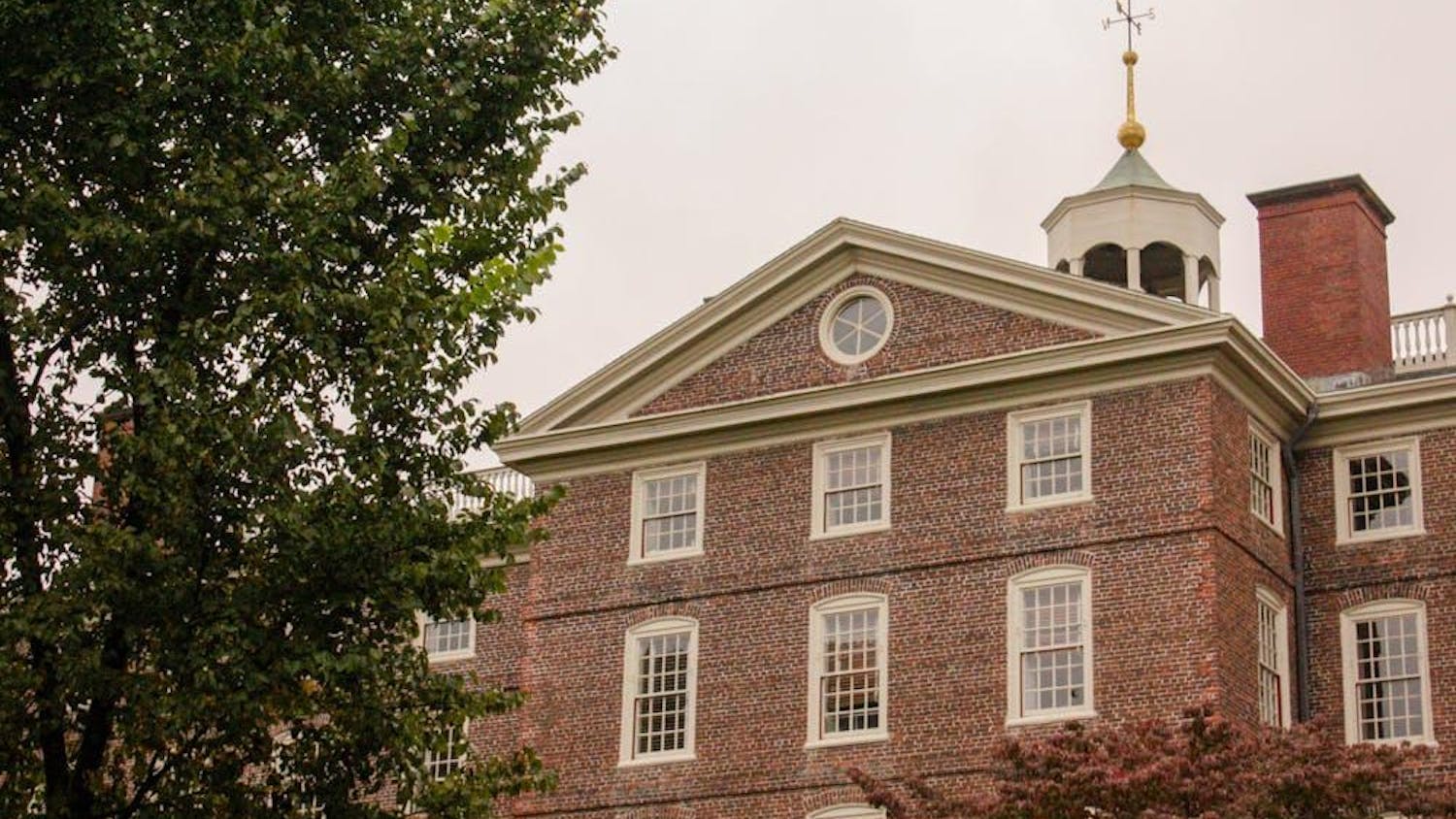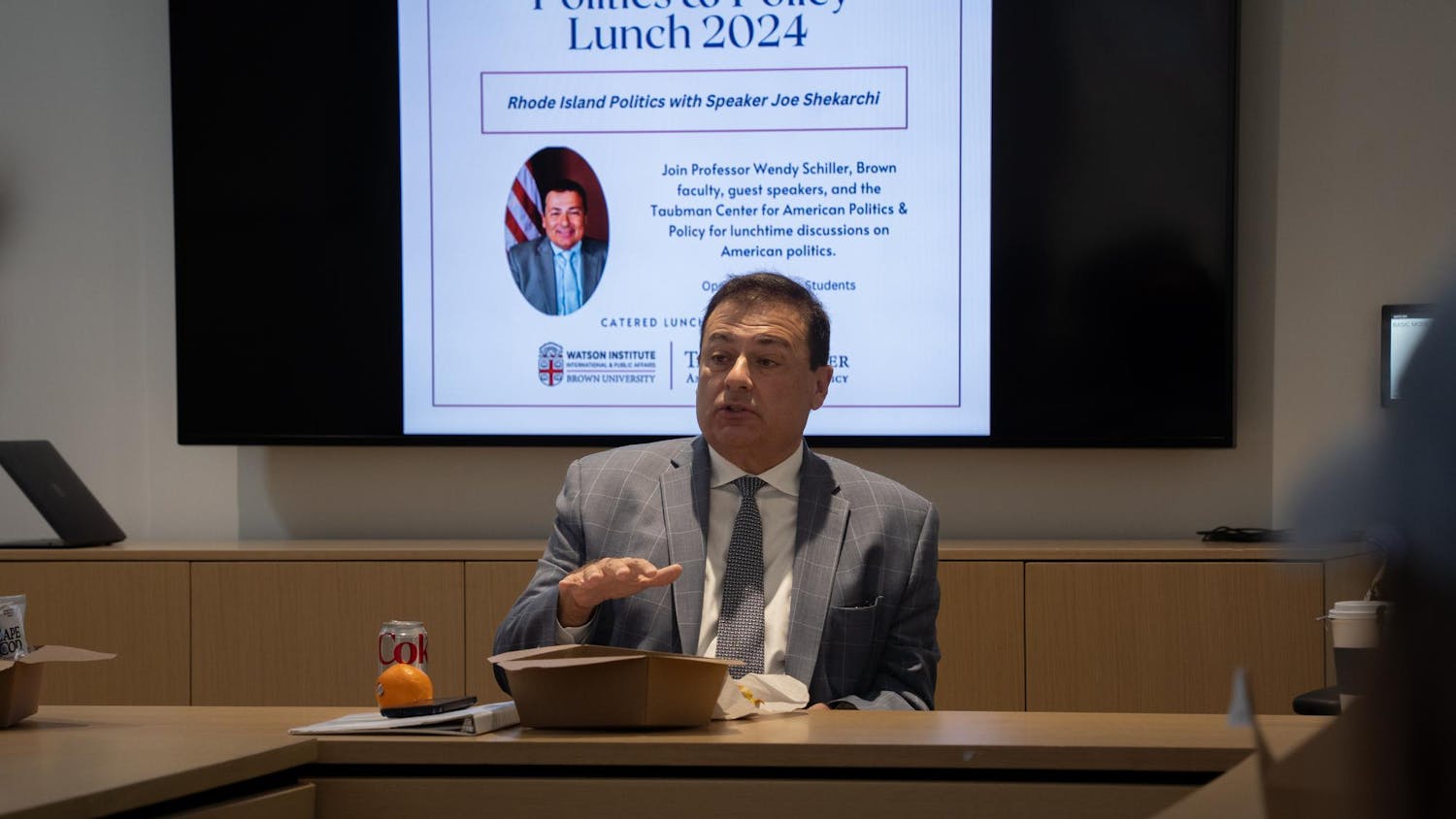Each semester, anywhere between eight and 30 groups of ambitious students get together with a professor to choose a topic, write a syllabus and create their own credit-bearing course known as a Group Independent Study Project, or GISP. There are eight GISPs open to Brown students this fall.
There are often fewer GISPS in the fall than in the spring because students don't realize they must coordinate their efforts so far in advance, said Laura Ucik '13, an independent studies co-coordinator. First-years cannot participate in GISPs in their first semester, but they can propose GISPs for their second semester, according to the GISP website.
GISP proposals for spring 2013 are due Nov. 2.
The GISP designing process is simple. When students have an idea, they must provide a justification for the course and the work required to learn the topic. GISP proposals are reviewed by a committee of administrators, professors and independent study coordinators. They then undergo revisions before they are approved.
"The sky's the limit," Ucik said. "It's really easy to get a GISP approved as long as you're in communication."
This semester, eight GISPs were approved, one of the lowest numbers in recent years. Some current topics include "Social Justice and the Law," "Chaebols and the Korean Economy" and "Global Sports Media and Communications."
GISPs are known for being student-driven environments where professors take on collaborative rather than leading roles.
"The experiences have all been rewarding because the students involved in them have been serious and highly motivated," wrote Howard Chudacoff, professor of history, in an email to The Herald. Chudacoff has advised several GISPs, including one called "Interdisciplinary Study of Sport." Chudacoff wrote that he respected both the students and the work they were doing.
"It's the students defining the path themselves," said Jonah Kagan '13, who is participating in a GISP called "Infographics." The environment is very collaborative and self-evaluative, he said, adding that members of his GISP include students studying computer science, cognitive science and visual art, which produces different perspectives on the topic.
Kagan said he and his group spent the first day of class answering the question, "What is infographics?" They decided it consisted of various forms of visual communication, he said.
Another GISP called "Radio Storytelling" is a workshop that explores how to present fiction and nonfiction stories in an audio format, said Caitlin Kennedy '14, a student in the course. The students explore how stories can be told in different ways, as well as how to act with their voices and the works of famous radio personalities, she said.
"It's like going to a movie together for class on a Friday night," she said, adding that the atmosphere is very friendly, laid-back and intimate, and the students enjoy studying and sharing their favorite radio stories for credit.
"Everyone in the class is very invested and accountable to each other," said Louisa Kellogg '14.5, another student in the course. "We all want to get the most out of the class, so everyone is really involved."
Last semester, the University kicked off its first GISP Talks. Modeled after TED Talks, GISP Talks showcase the work of the semester's GISPs, according to GISP coordinators and participants. Last spring, around 60 students and faculty gathered in Solomon to learn about the exciting endeavors of the 13 GISPs from the semester. The trailer of a movie made by students in the GISP "Character: From Stage to Screen" and slideshows from "Science and Compassion in Medicine" and "Sport for Development and Peace" were among the presentations.
"It's something you walk out of and go, 'Wow,'" said Evan Schwartz '13, an independent concentrations coordinator.
GISPs were a direct product of the New Curriculum, which seeks to make independent study an integral part of being a Brown student.
"Everyone is so clearly passionate about what they are doing. That's what's so great," Ucik said. "Students can study whatever they're interested in."




